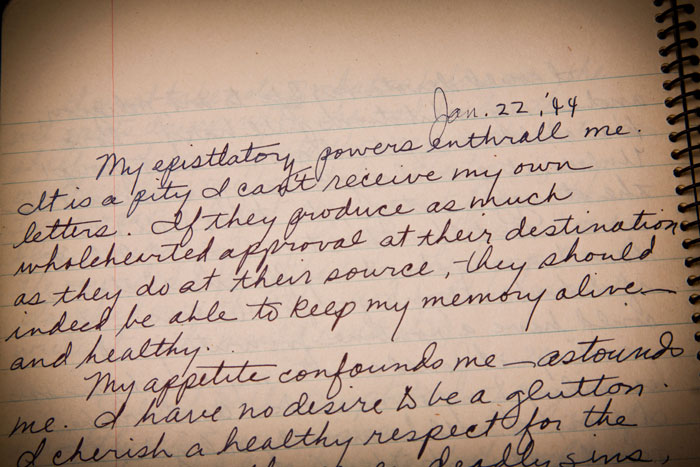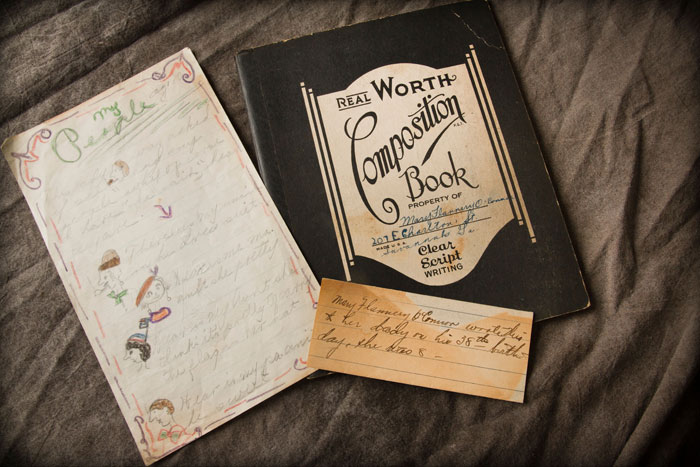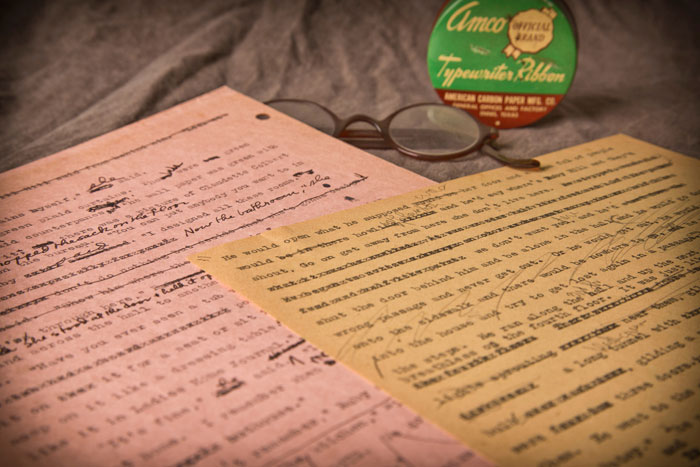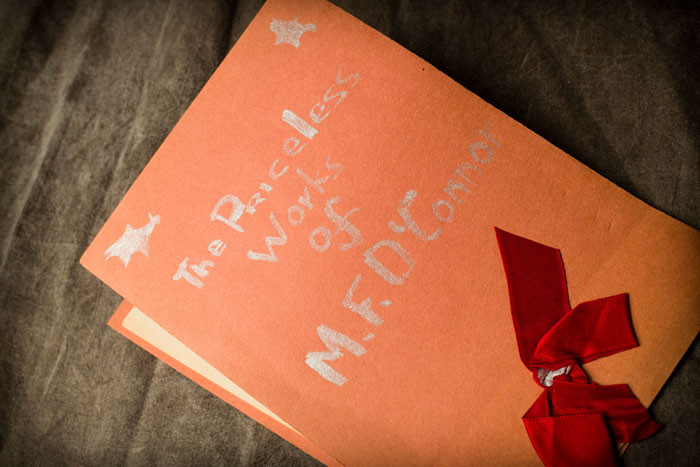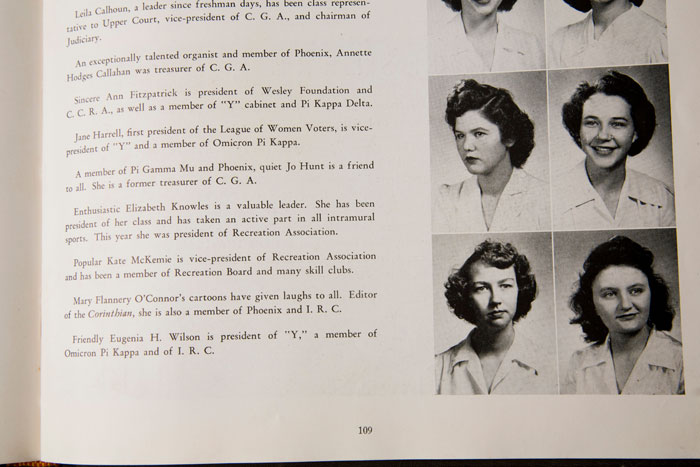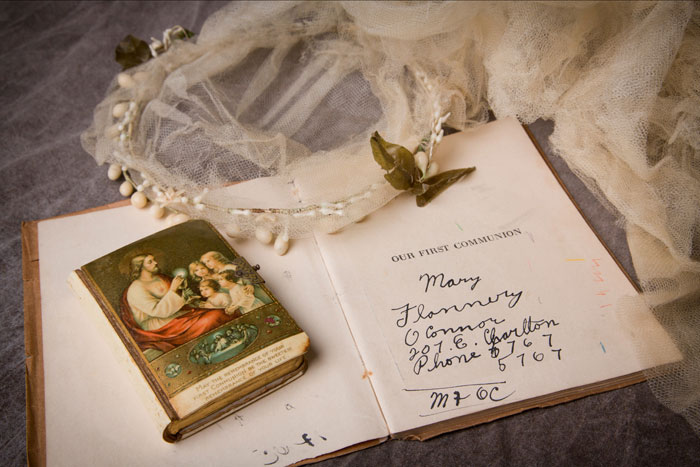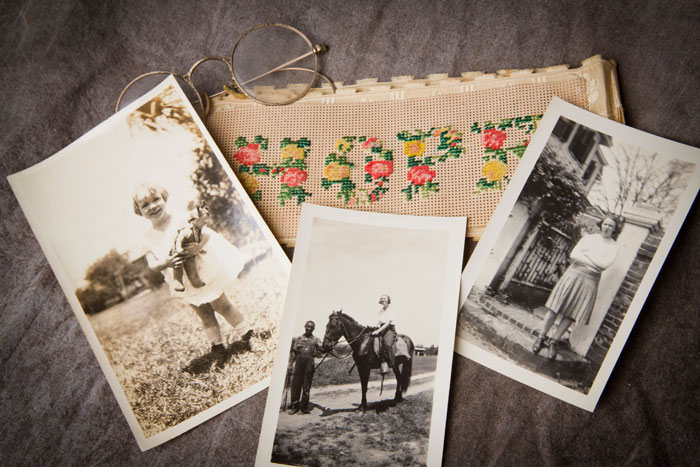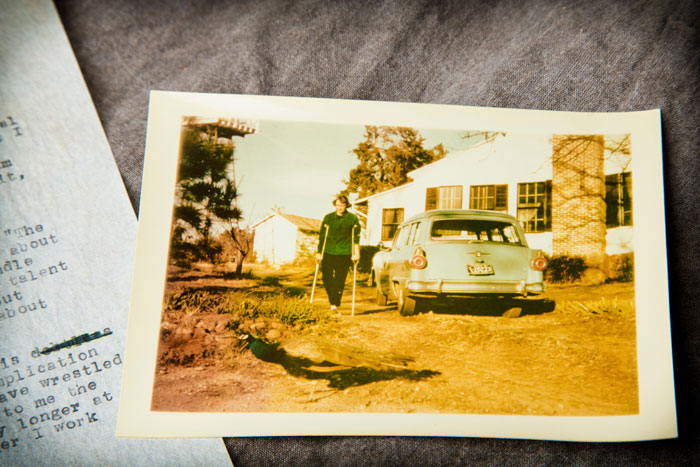Emory University's Manuscript, Archives and Rare Book Library (MARBL) has acquired the archive of iconic American writer Flannery O'Connor from the Mary Flannery O'Connor Charitable Trust in Milledgeville, Georgia.
"This archive is a distinctive collection that will provide new opportunities for teaching and research about O'Connor and modern literature," says Rosemary M. Magee, director of MARBL. "The materials place O'Connor's inner journey within the context of her public journey as a major voice in American literature. We see her development as an artist along with her spiritual pilgrimage.”
"At long last, Flannery's archive is where my sister Margaret and I had always wanted it to be," says Louise Florencourt, cousin of Flannery O'Connor and co-trustee of the Mary Flannery O'Connor Charitable Trust. Michael J. Garanzini, co-trustee with Florencourt and president of Loyola University Chicago, expressed his pleasure "that the papers have found a home at Emory, whose reputation for good stewardship is well-known."
"We couldn’t be more excited to house her materials, from her earliest writings and handmade books, to her early poetry, hundreds of photographs, unpublished writings and extensive unpublished correspondence," says Kevin Young, curator of literary collections and the Raymond Danowski Poetry Library at MARBL. "Even reading a portion of this collection, O'Connor's humor and fierce faith come at us in waves, offering a new perspective on the South, writing and O'Connor herself."
About the collection
The O'Connor archive consists of the papers of O'Connor from the 1930s throughout her life, and contains correspondence; writings; artwork; journals and notebooks; photographs, slides, negatives and scrapbooks; printed material and clippings; legal and financial records; and awards.
The correspondence includes over 600 letters, often on a daily basis, between O'Connor and her mother Regina, as well as outgoing letters from O'Connor to family, friends and other writers including Louise Abbot, Cecil Dawkins, Caroline Gordon and John Crowe Ransom and Allen Tate.
O'Connor and Emory
The archive's arrival at Emory is a major milestone in a relationship between the university and the O'Connor family that began more than 50 years ago, says Magee. She cites correspondence in the archive between her predecessors at Emory and the O'Connor family dating from the 1960s and over the decades. During her lifetime, O'Connor visited Emory and spoke to classes, and was a patient at Emory University Hospital. She died of complications from Lupus in 1964.
The archive joins an array of O'Connor materials at MARBL acquired over the last several decades. Among these are: a collection of O'Connor's letters to her close correspondent Betty Hester that came to Emory in 1987 and were opened to the public in 2007; and the papers of Sally Fitzgerald, writer and editor of several volumes of O'Connor's letters and works, acquired in 2008 with significant additions earlier this year.
O'Connor's archive is part of a world-class repository of some of the finest collections of modern literature, particularly 20th century American, British and Irish poetry; African American literature, history and culture; and an extensive collection on the American South. The collection includes Nobel laureate Seamus Heaney's papers, British poet laureate Ted Hughes' papers, Alice Walker's archive, the papers of Benny and Raymond Andrews, Salman Rushdie's archive and the 70,000-volume Danowski Poetry Library.
Collection highlights
Among the highlights of the O'Connor archive are:
- More than 630 letters from O'Connor to her mother Regina, never before published. These letters include accounts from her time at Iowa in what became the Iowa Writer's Workshop. One letter to her mother from 1945 records her adopting her publishing name of "Flannery O'Connor" — rather than her given name of Mary Flannery O'Connor (which she often used on her earliest writings).
- Early writing from the 1930s, including handmade books she created, many of which indicate her early poetry. Most are signed "MFO'C".
- Lively correspondence from an array of writers, from John Crowe Ransom to Caroline Gordon, who gave O'Connor substantial support with the edits on her first novel, "Wise Blood."
- O'Connor's "A Prayer Journal," which was published last year.
- A personal journal labeled "Higher Mathematics I," which includes many personal ruminations on the art and craft of writing.
- Many family photographs of O'Connor, from infancy to toward the end of her life, most of which have not been seen outside the family.
- Personal objects, including O'Connor's rosary, a communion veil and eyeglasses.
Emory faculty reaction
Natasha Trethewey, former U.S. Poet Laureate and director of the Emory Creative Writing Program, says O'Connor has been an important writer to her since the beginning of her own literary pursuits.
"I carried her collected stories with me when I went off to graduate school, and I learned a great deal form the precision of her stories — her clear-eyed look at the world around her, her unflinching investigation of human nature," says Trethewey. "This archive is a great resource for those wishing to see the inner workings of the mind of a great writer dealing with the ongoing issues and difficult knowledge of our historical moment."
Salman Rushdie, Distinguished Writer-in-Residence at Emory, expressed delight "that this invaluable collection of Flannery O'Connor's papers is joining the MARBL treasure-house. I'm a great fan of O'Connor's." Both Rushdie's and Trethewey's papers are also housed at MARBL.
MARBL is recognized for the access it provides to students as well as to scholars and for its public programming and exhibitions. Magee notes that the O'Connor archive "will be a centerpiece of our collection in modern literature and provide a rich source of primary evidence about a major American figure that students, faculty and other researchers will explore for many years to come."
The papers are open for research in the MARBL reading room, and a preliminary inventory of the papers is available online.

